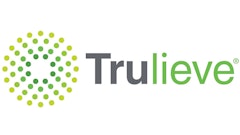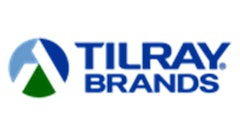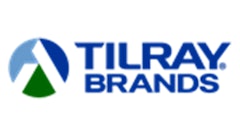
In the immediate aftermath of Canopy Growth Corp.’s Oct. 25 announcement that the company intends to accelerate its plans to enter the U.S. market through a new holding company, Canopy USA, excitement ran rampant on the stock market.
RELATED: Canopy Growth to Acquire Acreage, Wana, Jetty in US Entrance
In just a couple short hours, the Ontario-based company’s share price increased 20% and continued to run into the next day, peaking at a 43% jump post-announcement. But that rally came to a halt mid-day Oct. 26 when questions arose regarding how Canopy Growth would legally maintain its U.S. listing on the Nasdaq Stock Market upon entering the federally illegal U.S. marketplace.
Initially, there were implications of a possible loophole for current U.S.-based operators to somehow “reverse engineer” their company financials out of the country while creating a new holding company for exchangeable share purposes here at home.
“Dumb question, but if [Canopy Growth] can maintain their U.S. listing with this strategy, why couldn’t most U.S. cannabis reverse engineer this to have a [holding company] that owns ‘exchangeable shares’ that effectively accomplishes the same thing,” Mindset Capital CEO Aaron Edelheit questioned Oct. 25 on social media. “The whole thing is just so absurd to me.”
But the day after the announcement, Oct. 26, it became clear that Canopy’s Nasdaq listing could be in jeopardy upon closing acquisitions of Wana Brands, Jetty Extracts or the fixed shares of multistate operator Acreage Holdings: Nasdaq objected to Canopy consolidating the financial results of Canopy USA in the event of those transactions, according to a Securities and Exchange Commission (SEC) filing by Canopy.
“Nasdaq has proposed that such consolidation is impermissible under Nasdaq’s general policies,” the filing states. “The company intends to comply with the SEC’s guidance on the application of U.S. [Generally Accepted Accounting Principles] for financial reporting purposes. The company disagrees with Nasdaq’s potential application of its general policies as the basis for its objection since it contradicts the company’s financial reporting requirements under U.S. GAAP including its application to THC plant touching businesses.”
Canopy officials stated there is no assurance that Nasdaq will harmonize its general policies with the SEC accounting guidance.
“As such, there can be no assurance that we will remain listed on the stock exchanges we are currently listed on, which could have a material adverse effect on our business, financial condition and results of operations,” the filing states. “In the event of a delisting from a stock exchange, there is no assurance that we will be able to satisfy the conditions required to list on an alternative stock exchange.”
So, is there a maneuver for U.S. cannabis companies to list on the Nasdaq? The short answer is “probably not,” cannabis consultant Marc Hauser, president of Hauser Advisory who worked as an attorney for 25 years, wrote on his Cannabis Musing blog.
Since Canopy Growth will reportedly only own nonvoting stock of Canopy USA (and that nonvoting stock may be exchanged, at Canopy’s option), the Canadian licensed producer will have an economic stake in Canopy USA but no right to direct Canopy USA’s actions, Hauser explained.
“So, I presume Canopy’s argument to the exchanges and the state licensing authorities will be, ‘See, we don’t own Canopy USA and its plant-touching assets because we have no control over it,’” Hauser wrote. “And, usually, the way these things go, the lawyers call the Nasdaq ahead of time and tell them about what’s going to happen, but the Nasdaq never says, ‘Oh, sure, go right ahead.’ Instead, they either say, ‘Well, we’ll make a final decision when you’ve filed all of the documents, but we’re not yet going to tell you what we think,’ or they laugh so hard that the lawyers hang up the phone and get their final invoice prepared.”
Hauser said he presumes the former happened, but he doesn’t think the Nasdaq folks are totally in agreement yet.
For Canopy Growth, which has common stocks traded on both the Toronto Stock Exchange and the Nasdaq—so investors in both the U.S. and Canada have direct access to those shares—the possible delisting implications include a roughly $1.5 billion market cap currently at stake. That market cap represents Canopy as one of the six largest cannabis companies in the world.
In the Oct. 25 announcement, Canopy CEO David Klein said that his company plans to unleash the full power of its scalable and “ideally positioned” U.S. cannabis ecosystem to unlock a “once-in-a-generation opportunity.”
But cannabis’ continued Schedule I listing under the Controlled Substances Act is what could stand in the way of realizing the full benefits of participating in the world’s largest market.

























